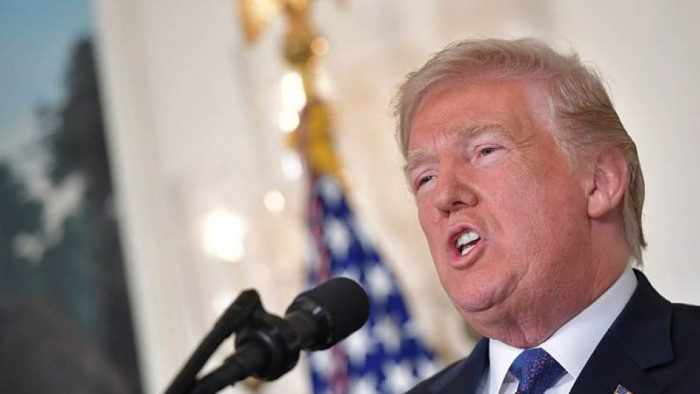The crimes for which Donald Trump faces an impeachment trial started with the words “we’ll have to see what happens.”
That’s the unprecedented answer he gave to a simple question, months before the election – on whether he would commit to a peaceful transfer of power, “win, lose or draw”.
Many Americans, perhaps naively, assumed the answer was a given. When Presidents lose, they concede defeat gracefully and move on.
And even as the President spent the following months systematically undermining faith in American democracy, a service normally provided by the Kremlin, he wasn’t taken seriously.
He told a violent white supremacist group to “stand by”, urged followers to engage in intimidation tactics at polling stations, laughed as supporters tried to run a Biden campaign bus off the road in Texas and shouted ‘fraud’ at any crowd stupid enough to risk death by Covid to gather to hear him speak.
By the time his final days in office came to pass, he’d excited his supporter base into an ill-informed frenzy.
But his defence team want to ignore all of that in this week’s trial – solely concentrating on his last stump speech outside the White House.
They’ll argue he only told supporters to “fight” a handful of times. In reality he used the word more than 20 times during the speech.
And they’ll argue he didn’t really mean it, because he (once) said they should protest “peacefully.”
It’s unclear whether they’ll also argue he clearly didn’t incite a riot because he had his fingers crossed behind his back the whole time.
But we’re getting ahead of ourselves.
Today’s opening arguments aren’t about that. They’re about whether this second impeachment should go ahead at all.
Republicans are calling for the entire trial to be thrown out, claiming it’s impossible to impeach him because he’s no longer President.
It’s a fairly dim-witted argument, that is dismissed by most constitutional lawyers.
If it’s unlawful to impeach a President for actions he took while he was still in office, that’s tantamount to declaring the final days and weeks of his term a free-for-all.
If he wins that argument, Trump will be disappointed he didn’t use his consequence-free weeks to loot the Oval, sell Hawaii to pay off his loans and use The Beast to do doughnuts on the South Lawn.
In reality, the President’s actions – not just at the end of his term, but throughout the campaign – have got to have repercussions.
And while this impeachment won’t serve the usual purpose of removing him from office, it could bar him from running in 2024.
Tonight’s vote on whether to press ahead with the trial is a straight, up or down vote. Democrats need a simple majority to move it forward, and they have that.
Beyond today, they don’t appear to have the support of two thirds of the Senate they’ll need to convict the former President. Not at this point, anyway.
But this is a political trial. The criminal ones will, presumably, follow later.
So even if Republican Senators still have enough residual Stockholm Syndrome to acquit the man who radicalised the Grand Old Party and ravaged its reputation, there’s a political benefit to making them defend him on the record.
But the main benefit of doing this now, in public, even if it’s voted down, is to make up for lost time.
Throughout Trump’s presidency, people underestimated the danger of his actions and words.
Even through the election campaign, many observers in the US wouldn’t go much beyond lofty, nebulous complaints like “he’s breaking the norms of politics”.
The impeachment, doomed though it may be, is an opportunity for sensible American politicians to make up for lost time. To draw a line and decide which side of it they want to stand.
To decide what is and isn’t acceptable political speech – and to allow the public to decide what they think of those who defended America’s most dangerous President.
Because if you just shrug and let him go home to Florida, you let Donald Trump get away with it. Again.







